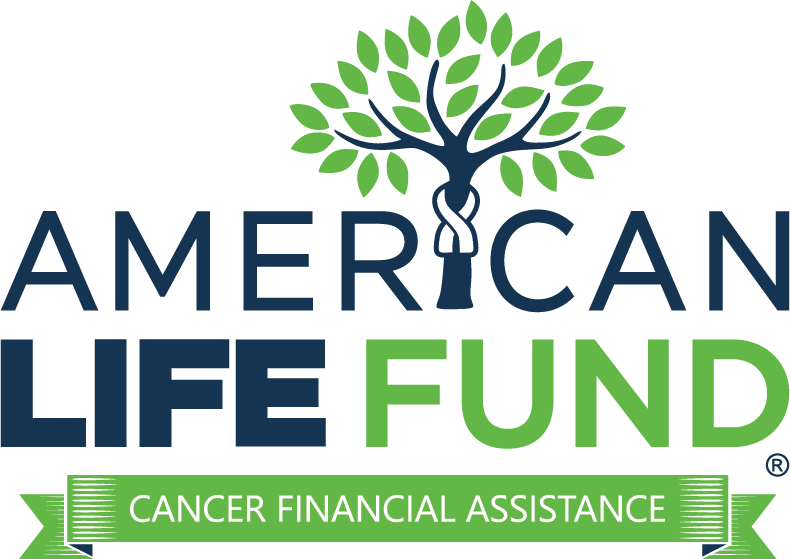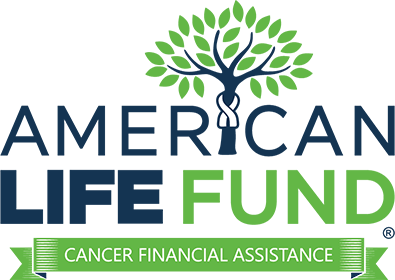Dealing with the high cost of chemotherapy, which can range from $10,000 to $20,000 per session, is daunting, but various financial assistance options are available. Health insurance may cover part of the expenses, and programs like Medicare can provide additional support. Nonprofit organizations such as the American Cancer Society and CancerCare offer financial aid, and viatical settlements allow you to sell your life insurance policy for immediate funds. Don’t hesitate to seek help from these resources, your healthcare team, and supportive networks to alleviate the high cost of treatment and focus on your health.
Quick Read
- Chemotherapy costs vary widely based on factors such as cancer type, treatment duration, and location, with average treatment sessions ranging from $10,000 to $20,000.
- Strategies to manage chemotherapy expenses include exploring insurance coverage, researching financial assistance programs, negotiating with healthcare providers, and seeking support from family and friends.
- Medicare offers coverage for chemotherapy treatments, including both inpatient and outpatient care, depending on the type of plan.
- Alternative financing options, such as viatical settlements using an existing life insurance policy, can provide financial relief for cancer patients facing significant treatment costs.

What is Chemotherapy
Chemotherapy, or chemo, is a drug therapy that destroys cancer cells quickly. In addition to cancer, it can also be used to relieve pain.
After being diagnosed with cancer, your doctor will likely recommend chemo as a standalone or combined with other treatments. So many face uncertainty regarding the costs associated with cancer care. But understanding these expenses before beginning treatment can help you prepare for any financial burden that may come up.
That’s why we want to break down exactly what goes into your chemotherapy bill and provide useful tips on managing those payments, both with or without insurance coverage.
How Much Does Chemotherapy Cost
The cost of chemotherapy varies greatly. The average cost of a single treatment session can range from $10,000 to $20,000 without health insurance. Still expect to pay between 10-15% with health insurance.
Generally speaking, the more advanced the type of cancer you have, the higher the cost of chemotherapy will be.
The total price of chemotherapy also depends on the following:
Understanding Chemo Session Costs in the US (Estimates Only)
The cost of a chemo session in the United States can vary greatly depending on several factors. Here’s a breakdown to give you a general idea:
- Type of Cancer (Significant Variation):
- Different cancers require different drugs, and some are more expensive than others. There’s no single estimate here, but some common chemo drugs might range from $1,000 to $5,000 per session, with newer or more specialized treatments reaching $10,000 or more.
- Stage of Disease (10-20% of variation):
- Early-stage cancers typically require fewer sessions, reducing overall cost.
- Advanced stages might need more complex or frequent treatments, increasing the cost.
- Number of Treatments (20-30% of variation):
- The number of sessions depends on the specific cancer and stage. The more sessions, the higher the total cost.
- Duration of Treatment (10-20% of variation):
- This is related to the number of treatments, but also considers the length of each session and the overall treatment plan. Longer durations typically translate to higher costs.
- Type of Chemotherapy (Significant Variation):
- Different chemotherapy drugs have varying costs, as mentioned in the “Type of Cancer” section.
- Treatment Setting (10-20% of variation):
- Hospitals may charge more than outpatient clinics.
- Geographic Location (10-20% of variation):
- Costs can vary by region, with urban areas potentially being more expensive.
- Side Effects (Variable):
- Certain medications may be needed to manage side effects, adding to the cost of treatment. This can be difficult to estimate upfront, but it’s a factor to consider.
Putting it Together (Disclaimer: This is a very rough estimate):
Considering these factors, a single chemo session could range from:
- Lower end: $2,000 (assuming a common drug, early stage, outpatient clinic, and low-cost region)
- Higher end: $25,000+ (assuming a specialized drug, advanced stage, hospital setting, and high-cost region)
Important Note: This is a very broad range. Remember, these are estimates to give you an idea of the possibilities, not guaranteed costs. Always discuss treatment plans and associated costs with your healthcare provider for a personalized and accurate picture.

How to Pay For Cancer Treatment
Although most health insurance providers help cover cancer treatment to some degree, it is important to remember that every insurance plan differs. The best way to understand what your coverage includes is by directly communicating with your health insurance company.
Insurance
Health insurance coverage may include the following areas of cancer treatment:
Office Visits
A vital step in cancer treatment is visiting specialists regularly. Usually, insurance companies will pay for some of the fees per visit. However, you will be responsible for covering the rest. The amount you pay for your healthcare plan (co-pay or co-insurance) might be listed on your health insurance card.
Laboratory Tests
Your doctor may recommend laboratory tests, like blood or urine, as part of your cancer treatment plan. The fees for these tests are usually billed directly from the laboratory. Your insurance provider may cover all or some of these costs.
Imaging Tests
Among other tests, the group of healthcare professionals monitoring your progress might utilize imaging tests to monitor your progress. Some examples include:
- X-rays
- MRIs
- CT scans
Some health insurance policies cover part of the cost of these tests.
Procedures And Treatment
There are several types of cancer treatment:
- Surgery: If your surgeon doesn’t participate in your insurance network, your plan might only partially cover the procedure.
- Radiation: Your insurance provider might cover part of the cost of radiation treatments.
- Drug therapy: Your provider might help pay for your drug therapy, including chemotherapy. Usually, intravenous (IV) drugs are covered under your medical plan, while a separate pharmacy plan covers pills.
You may also have to pay a fee for each hospital admission or day if you need to stay in the hospital.

Medicare And Chemotherapy
Medicare offers coverage for chemotherapy and other cancer treatments, depending on what type of plan you have. According to Medicare.gov, chemotherapy and other cancer treatments are covered by Medicare. This includes Part A, which covers inpatient stays in a hospital setting, and Part B, providing coverage for outpatient treatment outside of a hospital stay.
Managing Chemotherapy Costs
Your cancer treatment plan can be expensive, and it’s important to prepare for the financial repercussions of therapy. Strategies to manage your costs include:
- Choose in-network providers: To save money, go to in-network providers whenever possible. Your health insurance won’t cover visits outside of your network.
- Plan for out-of-network visits: Before you make an appointment with an out-of-network provider, call your insurance company to see if they will cover the costs.
- Get a full list of treatment needs: Get a list of proposed treatments from your healthcare team. Then, call your insurance provider to see what they will cover.
- Researching grants and assistance programs: Cancer Financial Assistance Coalition, American Cancer Society, Patient Access Network Foundation, and Patient Advocate Foundation all offer financial help for cancer treatment costs.
- Negotiating with providers: Speak to your healthcare providers or the hospital billing office to see if you can negotiate lower costs.
- Seeking help from family and friends: There may be family members, friends, or other people in your community willing to help you cover some of the cost of chemotherapy treatments.
- Creating a budget: Create a budget and plan for the costs associated with your cancer treatment.
Selling Your Life Insurance Policy
A viatical settlement is a way to finance chemotherapy treatment costs by selling your life insurance policy to a third party. This arrangement is typically used by people diagnosed with a life-threatening illness who do not have the financial resources to pay for their medical care or other expenses. The proceeds from the sale of the policy are used to pay for treatment, , living expenses, or any other debts or expenses.
American Life Fund specializes in viatical settlements and are ready to help you understand how you can take control of those medical bills and other expenses related to your treatment by accessing funds through your life insurance policy.
Support Programs & Financial Assistance
There are a number of alternative programs that exist to support and care for people with cancer. These groups can introduce you to others who have walked a similar path.
One path well worn is that of an individual who needs to think carefully about their financial choices. There are many financial assistance programs that have been set up to help alleviate some of the stress that inevitably comes when having to deal with the medical bills when undergoing chemo.
There is no shame in reaching out for help in these times of difficulty, whether that be to family, friends, support groups or financial assistance programs.
There are a variety of cancer support groups and financial assistance programs available both in-person and online. Check out the following websites to find programs near you:
- American Cancer Society
- CancerCare
- Friend for Life
- Cancer Support Community
- 2-1-1
- LIHEAP (Low Income Home Energy Assistance Program)
- Cancer Horizons
- The Pink Fund
- Cancer Financial Assistance Coalition (CFAC)
Summary
Managing the financial strain of a cancer diagnosis alongside the emotional weight can be overwhelming. While health insurance typically covers a portion of chemotherapy expenses, it’s important to recognize additional avenues of support.
Guidance from a hospital financial counselor or exploring assistance programs can help with some of the stress associated with treatment costs. Maintaining open communication with your healthcare team ensures they understand your needs fully, enabling them to provide support throughout your treatment. You are not alone in this fight. There are resources available to help you financially during this difficult.
How do I manage the financial challenges of breast cancer treatment?
Breast cancer treatment costs can be overwhelming, but there are resources available to help. Consider exploring viatical settlements, such as those offered by American Life Fund. Viatical settlements provide an option to sell your life insurance policy for a lump sum cash payment, which can help cover the expenses associated with breast cancer treatment.
What assistance programs are available for cancer patients without adequate insurance coverage?
Cancer patients facing financial hardship can seek support from patient assistance programs offered by various organizations, including the National Cancer Institute. These programs often provide financial aid for treatment expenses, medications, and other related costs.
How can I determine if my health insurance plan covers clinical oncology treatments?
Review your health insurance plan’s coverage details to determine if clinical oncology treatments, including chemotherapy, are included. It’s advisable to contact your insurance provider directly for specific information regarding coverage for clinical oncology services.
Are there government-funded health insurance programs that provide coverage for cancer treatment?
Yes, a government-funded health insurance program such as Medicaid may provide coverage for cancer treatment expenses. Eligibility requirements vary by state, so it’s recommended to inquire about available options through your state’s Medicaid office.
How can I access financial assistance for cancer treatment if I don’t qualify for government-funded programs?
If you don’t qualify for government-funded programs, explore other options for financial assistance, such as viatical settlements, patient assistance programs offered by pharmaceutical companies or nonprofit organizations. Consider consulting with a hospital financial counselor to explore all available options.





